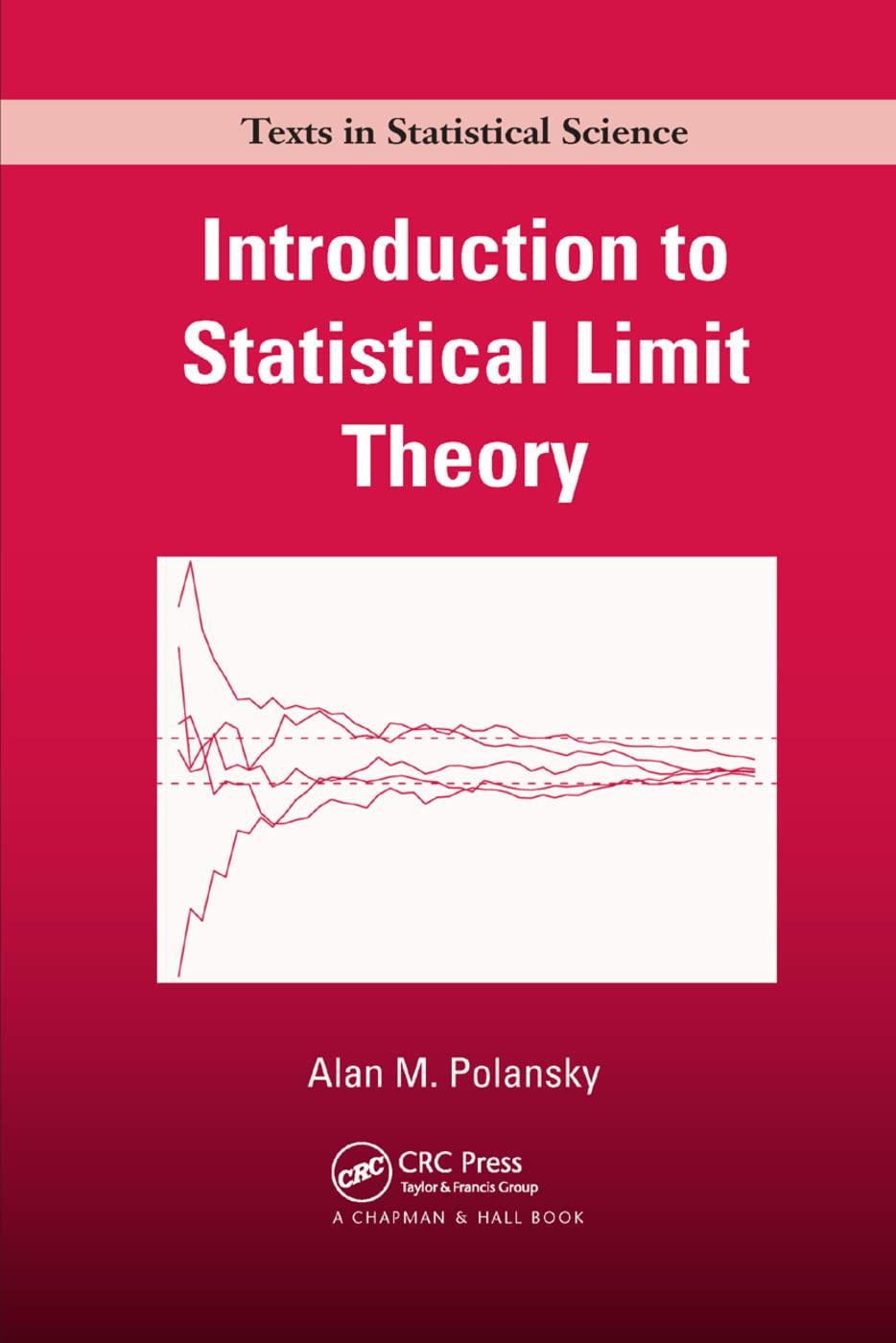Consider a functional of the form [T(F)=int_{-infty}^{infty} cdots int_{-infty}^{infty} hleft(x_{1}, ldots, x_{r}ight) prod_{i=1}^{r} d Fleft(x_{i}ight)] where (F
Question:
Consider a functional of the form
\[T(F)=\int_{-\infty}^{\infty} \cdots \int_{-\infty}^{\infty} h\left(x_{1}, \ldots, x_{r}ight) \prod_{i=1}^{r} d F\left(x_{i}ight)\]
where \(F \in \mathcal{F}\), a collection of distribution functions. Prove that if \(k \leq r\) then
\[\begin{aligned}& \Delta_{k} T(F ; G-F)=\left[\prod_{i=1}^{k}(r-i+1)ight] \times \\& \int_{-\infty}^{\infty} \cdots \int_{-\infty}^{\infty} h\left(x_{1}, \ldots, x_{k}, y_{1}, \ldots, y_{r-k}ight)\left[\prod_{i=1}^{r-k} d F\left(y_{i}ight)ight]\left[\prod_{i=1}^{k} d\left[G\left(x_{i}ight)-F\left(x_{i}ight)ight]ight.\end{aligned}\]
and if \(k>r\) then \(\Delta_{k} T(F ; G-F)=0\). This result has been proven for \(r=1\) and \(r=2\). Establish this result for a general value of \(r\).
Step by Step Answer:






